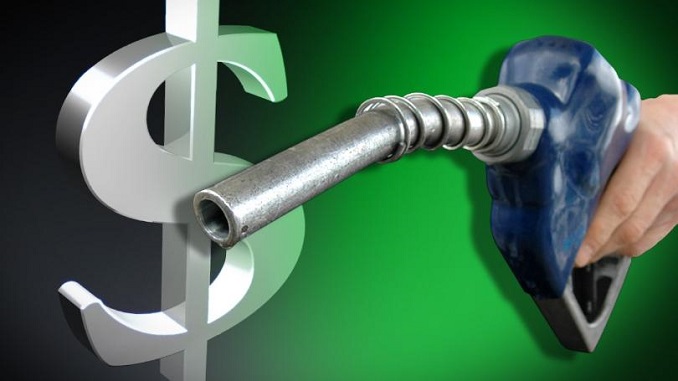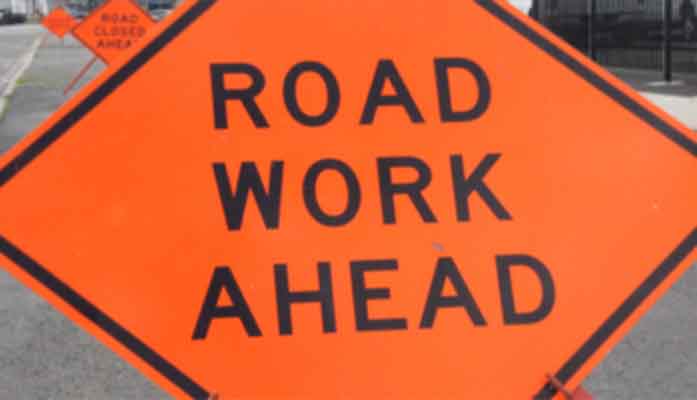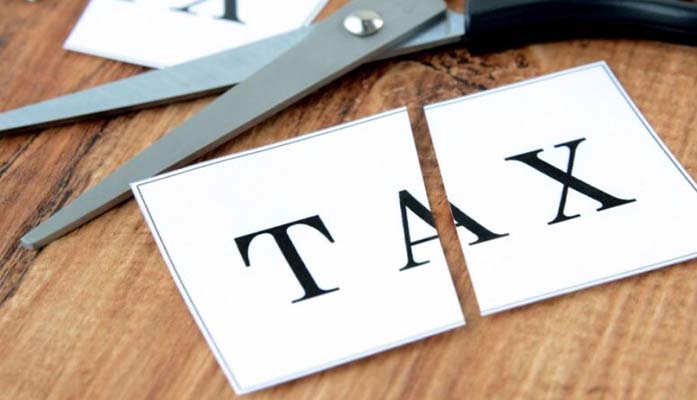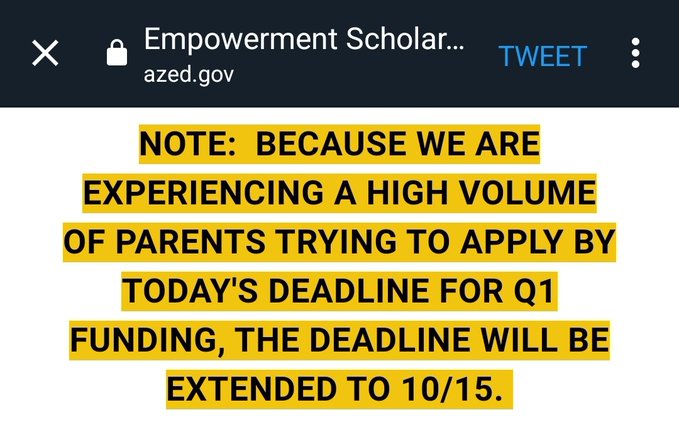
by Terri Jo Neff | Oct 10, 2022 | News
By Terri Jo Neff |
The cities of Nogales, Arizona and Nogales, Sonora signed a Memorandum of Understanding last week that will allow construction of a new international railway crossing and relocation of train tracks to a less urban area east of the current tracks.
The agreement signed by Mayor Juan Francisco Gim Nogales of Nogales (SON) and Mayor Arturo Garino of Nogales (AZ) was witnessed by Heriberto Aguilar Castillo, the Sonoran Secretary of Infrastructure and Urban Development on behalf of the State of Sonora.
Business leaders on both sides of the border have been pushing for decades for improvements to rail infrastructure leading to and at the international crossing. Rerouting the tracks and upgrading the crossing has been a priority for Gov. Alfonso Durazo Montano of Sonora when he took office last summer.
Any financial commitments on the part of the two cities was not revealed during the signing ceremony, but Durazo previously suggested that $36 million (US) would be available from Mexican government entities.
Union Pacific Railroad operates the track from Nogales north to its East-West Sunset Route in Tucson. Heading southward from Nogales, Ferromex Rail serves customers along routes to Hermosillo, Guaymas, and Guadalajara.
In May, Durazo facilitated a meeting with Union Pacific, Ferromex, and other stakeholders to emphasize his support for the project. He pointed to public safety issues that have long plagued emergency responders on both sides of the border, and he noted there will be a significant increase in demand for expedient freight train service once the Port of Guaymas is upgraded.
An average of 70 northbound trains come into the U.S. through the Nogales Port of Entry each month, with traffic on pace to exceed 800 trains for the first time in more than six years. However, construction of the new crossing is a long way off, as both cities must undertake feasibility studies to identify the best location for the new international crossing and for the layout of the train tracks.
The Nogales rail project will complement Mexico’s $245 million (US) modernization of the Guaymas area championed by Mexico President Andrés Manuel López Obrador to expand the port, reinforce docks, and upgrade technology.
According to the UA Eller College of Management, Nogales has the oldest rail crossing of any border port of entry along the U.S. / Mexico border. Automobiles manufactured at the Ford Motors plant in Hermosillo, Sonora are shipped via rail to U.S. and Canadian markets through Nogales, as are bulk commodities such as cement and agricultural product.
“The dynamics of train crossings, and number of rail containers through the Nogales border port of entry reflect the composite effects of both trade between Mexico, Canada and the U.S., as well as between Arizona and Mexico,” according to the Eller College of Management’s Arizona-Mexico Economic Indicators.
Data provided by the UA Economic and Business Research Center shows more than $11.8 billion in U.S. exports went to Mexico in 2021 through U.S. ports of entry in Arizona. Nearly $10 million of that crossed through Nogales by either vehicle or rail.
Meanwhile, $17.6 million was imported across the U.S. ports of entry in Arizona from Mexico in the same period, with all but $3 billion coming through Nogales.

by Terri Jo Neff | Oct 8, 2022 | News
By Terri Jo Neff |
Katie Hobbs has her reasons for refusing to debate Kari Lake face-to-face in the race for Arizona Governor. But by doing so Hobbs is limiting the opportunities for Arizonans to hear her explain her history of supporting higher taxes while a member of the state legislature.
Hobbs, a Democrat currently serving as Arizona Secretary of State, has spent the last few weeks touting her promise to not raise taxes if elected. In fact, she is even promising to reduce taxes for many Arizonans even though it is doubtful that Democrats will control the legislature.
So with Hobbs making herself scarce for public questioning, voters are left to scrutinize her legislative history. And what can be found there casts doubt on her tax cut mantra.
Hobbs served in the Arizona State Senate from 2013 to 2019 and was Senate Minority Leader during much of that time. She also served one term as a member of the Arizona House of Representatives prior to the Senate.
In January 2018, Hobbs co-sponsored Senate Bill 1316 along with progressive Democratic Senators Juan Mendez, Jamescita Peshlakai, and Martin Quezada to eliminate the light class motor vehicle classification from Arizona’s fuel tax statutes.
But more importantly, SB1316 proposed to double the state’s per gallon motor fuel tax from 18 cents to 36 cents. The bill, which would have been one of Arizona’s largest tax hikes in state history, was so unpopular it was never heard by a Senate committee.
SB1316 is not the only time in Hobbs’ legislative history that she supported tax increases. In 2017, she was a fervent proponent of a sales tax increase that would have cost taxpayers between $500 and $600 million a year.
Also in 2018, Hobbs voted to impose an additional annual tax due when registering a vehicle. The new tax, set at $32 per vehicle, was so unpopular it was repealed by the legislature.
And back in 2015, Hobbs opposed critical legislation which was introduced to protect Arizonans from the effect of inflation on personal income tax brackets. The bill was eventually signed into law by Gov. Doug Ducey.
Hobbs’ legislative history on the subject of taxes is one reason organizations such as the Arizona Free Enterprise Club are encouraging voters to look at facts, not campaign speeches when it comes to Hobbs’ promise of tax cuts.
“Anyone who has followed Hobbs’ political career knows that this is just another outrageous lie,” AFEC posted Wednesday. “During her time in the state legislature, Katie Hobbs regularly opposed tax cuts for families while making it a habit to support multiple tax hikes….Hobbs has spent her political career trying to squeeze every possible dollar from your bank account.”

by Terri Jo Neff | Oct 4, 2022 | News
By Terri Jo Neff |
More than $13 million in federal grant money has been awarded to the Arizona Department of Transportation (ADOT) for Phase Two of a long-awaited improvement to U.S. Highway 95 between the city of Yuma and the U.S. Army’s Yuma Proving Ground.
The U.S. Department of Defense awarded the funds to ADOT last month through the Defense Community Infrastructure Pilot Program intended to make travel safer, and more reliable, for military personnel and equipment near installations such as the Yuma Proving Ground where a wide variety of weapons systems are tested.
According to ADOT, the nearly $13.3 million will be used to widen about three miles of the two-lane US 95 northeast of Yuma into a five-lane roadway from Rifle Range Road to the Wellton-Mohawk Canal bridge. The project, which is slated to begin later this year, will include a new bridge over the canal.
Meanwhile, ADOT has already been at work widening a 3.6-mile section of US 95 between Avenue 9E and Fortuna Wash as part of Phase One of the improvement project which included a new Gila Gravity Canal bridge.
Overall, ADOT is spending about $29 million for the much-needed improvements to US 95, which is an important thoroughfare not only for military purposes but also for agriculture users and residents of the greater Yuma area.
Lane restrictions and delays along US 95 are expected for several months.

by Terri Jo Neff | Oct 3, 2022 | News
By Terri Jo Neff |
Arizona will have just one personal income tax rate of 2.5 percent instead of four rates as of Jan. 1, Gov. Doug Ducey announced last week. That is an effective date one year sooner than was originally expected when the governor signed legislation in 2021 for what was designed as a three-year phase in.
“It’s time to deliver lasting tax relief to Arizona families and small businesses so they can keep more of their hard-earned money,” Ducey wrote to Arizona Department of Revenue Director Robert Woods on Sept. 29. “This tax relief keeps Arizona competitive and preserves our reputation as a jobs magnet and generator of opportunity.”
It is Arizona’s thriving economy and record revenues which allows for full implementation of the flat tax now instead of January 2024, according to Ducey. The Joint Legislative Budget Committee and the Governor’s Office of Strategic Planning and Budgeting jointly informed the governor last week that Arizona’s General Fund revenues, excluding the beginning balance for Fiscal Year 2022, were at $16.7 billion.
This exceeded the statutory economic condition phase-in triggers written into the flat tax law in 2021. In addition, Arizona’s Rainy Day Fund is at its highest level ($1.4 billion) in state history and economists are forecasting Arizona will report at least a $4 billion budget surplus through 2024.
“It’s no secret that Arizona’s economy is booming,” Ducey added in his letter to Woods. “Over the last eight years, we’ve made responsible decisions to live within our means, reduce burdensome government regulations, lower taxes every year and ensure our state remains a great place to live.”
Arizona House Majority Leader Ben Toma was instrumental in getting personal income tax reform passed during the 2021 legislative session to eventually replace the state’s four-rate system of 2.59 to 4.5 percent with the 2.5 percent flat rate.
“I am happy to report that revenue thresholds have been exceeded one full year in advance, enabling the implementation of a single flat rate of 2.5% a year earlier, providing Arizonans with significant economic relief when they need it most,” he said in response to the governor’s announcement.
Several business groups and economic development organizations lauded the news, which will give Arizona the lowest flat tax in the country when it takes effect Jan. 1.
Americans For Prosperity – Arizona:
“This is a historic win for Arizona that couldn’t come at a better time,” said State Director Stephen Shadegg of AFP-Arizona. “Over time, Arizonans will continue to reap the benefits of more tax relief and the state will become even more attractive to businesses and investors, growing the state’s economy while letting hardworking taxpayers keep more of their paychecks.”
Common Sense Institute Arizona, a non-partisan research organization dedicated to the protection and promotion of Arizona’s economy:
Arizona Chamber of Commerce:

by Terri Jo Neff | Oct 1, 2022 | Education, News
By Terri Jo Neff |
So many parents were trying to apply for Arizona’s expanded Empowerment Scholarship Accounts (ESAs) by Friday’s first quarter deadline that the department of education’s website was overwhelmed, leading to a decision to extend the application period.
“Because we are experiencing a high volume of parents trying to apply by today’s deadline for Q1 funding, @azedschools is extending the deadline to remain eligible for retroactive Q1 funding to 10/15/22,” the department announced midday Friday.
Gov. Doug Ducey helped spread word of the extension while commenting on the tremendous popularity of the new law which now makes all 1.1 million of Arizona’s K-12 students eligible to apply for an ESA which provides about $7,000 per student, per year to assist families in tailoring a student’s education experience to best meet their needs.
The funds can be used for a variety of purposes, including private school tuition, homeschooling expenses, educational therapies, tutoring, and other expenses in exchange for not attending a public school or receiving a tuition tax credit.
More than 12,000 applications have been received by the Arizona Department of Education since the governor signed ESA expansion legislation in June. That outpaces the number of students who were utilizing the ESA program under the old law.
The new expanded eligibility was to take effect Sept. 24 with a Sept. 30 deadline to qualify for first quarter funding. The rush by families to apply this week was bolstered by publicity involving a political action committee’s failed referendum effort to waylay the ESA expansion until voters could decide in 2024 whether it should go into effect or not.
Arizona Secretary of State Katie Hobbs put the law on hold Sept. 23 based on claims by Save Our Schools Arizona that more than 141,000 referendum petition signatures had been submitted to Hobbs’ office. Of those, at least 118,823 signatures needed to be validated to keep the ESA expansion sidelined.
But in a letter dated Thursday, Hobbs’ staff officially confirmed what has been known for days – that the referendum effort failed to come anywhere close to the constitutional minimum number of signatures.
One parent said Friday’s announcement by Hobbs’ office ensures parents are now “rightly in control of their children’s future.”
Christine Accurso of Gilbert is among pro-ESA parents who questioned whether the glaringly insufficient referendum filing was simply a calculated ploy by anti-school choice politicians to freeze funding for children right in the midst of the school year.
“As a longtime ESA parent, I could not be more thrilled to see thousands of new parents benefiting from this program,” Accurso said. “It is my hope that the rest of the country can follow our lead and bring this legislation to their state, so that we can one day see all American children in the school of their parent’s choice.”
Save Our Schools Arizona issued a statement Friday putting the blame for the group’s referendum effort failure on the governor, who is one of ESA’s staunchest supporters.
“We are confident we would have succeeded had Governor Ducey not waited 10 days to sign the bill, robbing Arizona voters of crucial time to sign the petition,” according to the statement.
The group even criticized pro-ESA organizations like the Goldwater Institute for using “sophisticated software” to review the petitions, resulting in Monday’s revelation that Save Our Schools Arizona submitted only about 90,000 signatures.
For school choice advocates like Accurso, the important fact is that the ESA expansion is now in effect. The priority now is to ensure families that still want to apply become aware of the extended Oct. 15 deadline.





